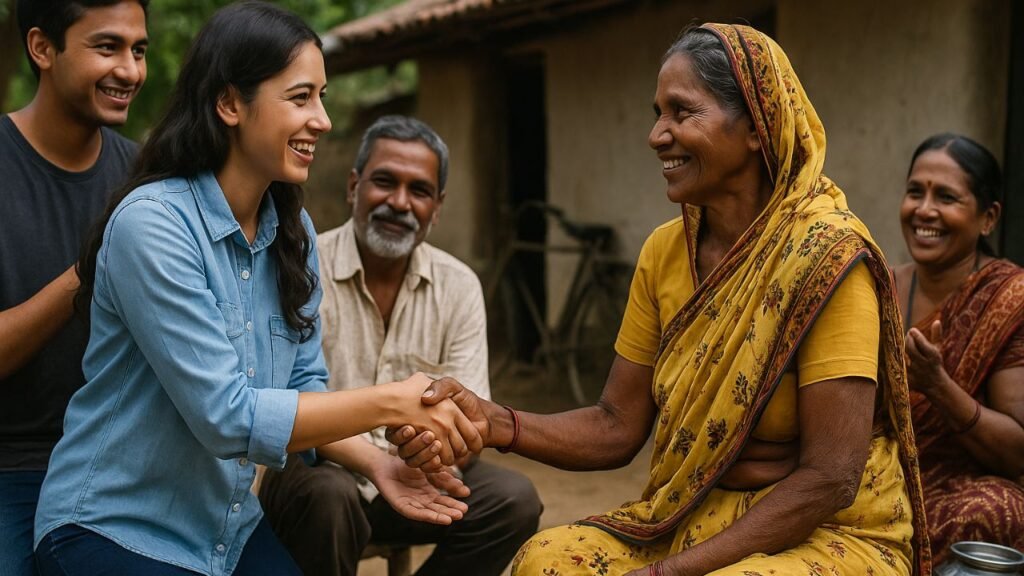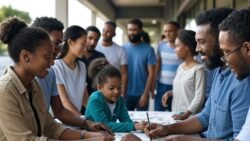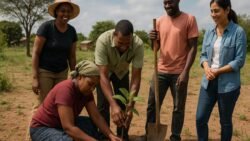Creating Lasting Social Impact – Creating lasting social impact with grassroots initiatives is not only about charity but about empowering people to take control of their futures. Across the world, small-scale programs led by local communities have shown that true transformation often starts at the bottom. From improving access to education and healthcare to creating sustainable livelihoods, grassroots projects address the immediate needs of vulnerable populations while also building long-term resilience. These initiatives are powerful because they recognize the specific cultural, economic, and social contexts of a region, ensuring that solutions are relevant and impactful. According to the United Nations, grassroots movements have been central in advancing the Sustainable Development Goals (SDGs) by directly involving citizens in decision-making processes (United Nations SDGs). Whether it is helping farmers adopt eco-friendly practices or enabling women to start small businesses, grassroots action provides a path to dignity, self-reliance, and collective progress, proving that real social change grows strongest when rooted in communities themselves.

Building Empowerment Through Education and Skills
Education and skills development are often at the heart of grassroots initiatives because they create opportunities for lasting impact. When rural youth and women gain access to knowledge and training, they can participate more fully in the economy and society. Local organizations and community-driven NGOs play a key role in filling the gaps left by government programs, ensuring that marginalized groups are not left behind. For example, community learning centers in India have been instrumental in reducing dropout rates and improving literacy in underserved regions (UNESCO Education). Skill-based programs, such as vocational training in tailoring, carpentry, or computer literacy, not only provide employment but also instill confidence and self-worth. These efforts demonstrate that education is not just about formal schooling but about empowering individuals with tools to lead independent lives. By investing in community-driven learning, societies can build stronger foundations for equality and long-term growth.
Healthcare and Grassroots Social Transformation
Healthcare is another area where grassroots initiatives are making remarkable progress. In many rural and underserved communities, lack of access to affordable medical care leads to preventable deaths and chronic suffering. Grassroots health programs bridge this gap by providing mobile clinics, community health workers, and awareness campaigns that address local needs. For instance, the World Health Organization has highlighted how community health workers have become critical in delivering primary care and health education in regions with limited infrastructure (WHO Primary Health Care). Programs that focus on maternal health, nutrition, and disease prevention empower families to make healthier choices and reduce long-term healthcare costs. Grassroots healthcare projects often succeed because they are built on trust, using local knowledge and language to engage communities effectively. By prioritizing wellness at the community level, these initiatives not only improve health outcomes but also strengthen social cohesion and resilience.
Women’s Leadership and Grassroots Change
Women have always been central to grassroots movements, and their leadership has transformed countless communities. Empowering women through microfinance, self-help groups, and local cooperatives enables them to support their families and participate in decision-making processes. According to UN Women, empowering women at the grassroots level leads to significant improvements in education, nutrition, and overall community well-being (UN Women). For example, microcredit initiatives have allowed women in rural areas to start small businesses, breaking cycles of poverty and dependence. Beyond economics, women-led grassroots projects often prioritize issues like clean water, sanitation, and children’s welfare, reflecting their unique perspectives and needs. This inclusive approach ensures that community development is holistic and sustainable. By fostering women’s leadership, grassroots initiatives not only advance gender equality but also unlock the potential of entire communities, proving that inclusive change is the strongest foundation for progress.
Environmental Sustainability and Community Action
Grassroots initiatives also play a crucial role in environmental protection and sustainability. Local communities, especially those dependent on natural resources, are often the first to feel the effects of climate change and ecological degradation. By mobilizing community action, grassroots groups have led reforestation drives, waste management systems, and renewable energy adoption. For instance, community-led forest management programs in Africa have been successful in preserving biodiversity and improving livelihoods (FAO Forestry). These initiatives not only restore ecosystems but also provide economic benefits, such as ecotourism and sustainable farming. Importantly, grassroots environmental projects are built on local knowledge, which helps ensure practical and culturally appropriate solutions. By addressing climate challenges at the community level, such programs contribute significantly to global sustainability efforts. They show that protecting the environment is not just a national or international responsibility but a shared duty that begins with local communities acting together for a greener future.






